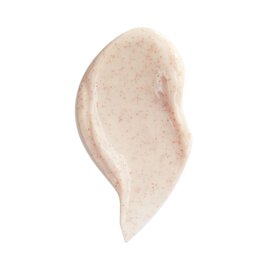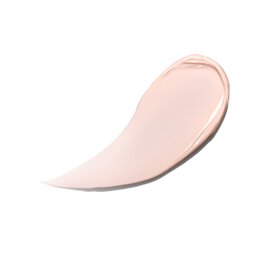THE DIFFERENCE BETWEEN ANTI-WRINKLE AND ANTI-AGING CREAMS
As we get older, many of us feel insecure about aging - especially when the first changes start to appear on our skin. With the plethora of anti-aging products on the shelves, all claiming to counteract or even stop the various signs of aging, it's easy to feel overwhelmed.
So how do you know how best to treat your skin? Is there a difference between anti-wrinkle and anti-aging creams? If so, which one should you use? We turned to experts to answer these questions.
WHAT HAPPENS TO OUR SKIN AS WE GET OLDER?
According to the Mayo Clinic, as we age, our skin becomes thinner, less elastic, and more fragile as the fatty tissue beneath the skin's surface diminishes. Oil production also slows down, leading to increased dryness, dehydration, wrinkling, and age spots. When these changes manifest, many women feel anxious and are not sure which product is best for their skin's particular needs. Your age, ethnicity, genes, the amount of sun exposure, environmental aggressors as well as many other factors influence how strongly the various signs of aging become noticeable and whether an anti-aging cream or anti-wrinkle cream can achieve the best result.
ANTI-WRINKLE VS. ANTI-AGING: UNDERSTANDING THE DIFFERENCE
Although the term anti-wrinkle is often used synonymously with anti-aging, these two terms do not mean the same thing. Skincare products with anti-wrinkle or anti-aging properties act in different ways. They address different problems, although there is undoubtedly some overlap. Anti-wrinkle creams and serums, to put it simply, focus only on one symptom of aging: preventing wrinkles. They soften the appearance of existing lines while preventing the formation of new ones. In contrast to an anti-aging cream, anti-wrinkle products have a more targeted effect. On the other hand, anti-aging creams are more preventive and serve a whole range of problems associated with aging, such as age spots, dullness, and loss of elasticity. Anti-aging creams are typically used to prevent the appearance of signs of aging, such as fine lines, wrinkles, and sagging skin. However, they are not as effective as anti-wrinkle creams in reversing wrinkles.
Nevertheless, there are also similarities: a paper published in the Journal of Clinical and Aesthetic Dermatology put the effectiveness of various anti-aging products to the test. In addition to an increase in skin hydration and a reduction in transepidermal water loss, the appearance of fine and harsh lines and wrinkles is also reduced. Both anti-wrinkle and anti-aging creams provide the skin with extra moisture, as aging skin is more prone to dehydration. Skin that is optimally hydrated appears plumper and more elastic and therefore shows fewer wrinkles.
If you're still not sure whether you should use an anti-wrinkle or anti-aging product, we'll now break down both options further to make sure you're treating your specific problem area in the best way possible.
IS IT TIME FOR AN ANTI-WRINKLE CREAM?
In most cases, deciding whether or not you should use an anti-wrinkle cream is relatively simple. Take a look in the mirror. If you notice fine lines forming around your eyes and mouth, you should probably opt for this option. But even with more pronounced wrinkles, it's never too late to reverse aging. According to Dr. Alex Khadavi, a dermatologist in Los Angeles, genes have an impact on your skin. You can get a good idea about the onset, depth and degree of possible wrinkles and lines by looking at your parents and grandparents. So, if you're still young and want to find out when you should probably add anti-wrinkle skincare products to your beauty routine, looking at genetic predisposition is certainly an indication. If some lines have already appeared and you are looking for an effective, targeted anti-wrinkle treatment, we recommend Blue Therapy Amber Algae Revitalize Day. you'llreducing wrinkles, you'll get a more radiant, revitalized complexion.
WHEN TO START USING ANTI-AGING PRODUCTS
As already mentioned, an anti-aging cream takes more of a preventive approach. Therefore, it can be difficult to determine when to include anti-aging products in your skincare routine. Dr. Paul Jarrod Frank suggests that most people should use anti-aging products between their late 20s and mid-30s. Of course, this age range can vary from person to person, and it's never too late to take precautions to prevent aging. If you want to reduce wrinkles but also other signs of aging, such as dark spots, a good anti-aging skincare routine can prove to be very effective. The Life Plankton Regenerating Serum is a great solution to prevent signs of aging. The anti-aging Biotherm active ingredient Biotech Plankton™ in its highest concentration and regenerates and strengthens the skin. Your skin will be visibly enhanced and you’ll slow down aging.
THE RIGHT CARE FOR YOUR SKIN
If you're still not sure whether an anti-wrinkle or anti-aging skincare routine is best for you, chances are your skin's needs are simply more diverse. In this case, a cream with a multifunctional formula is probably the best choice. Many people in their thirties have to deal with their first wrinkles, but also have to fight pigment spots. Sensitive or tired skin and a sallow complexion become more noticeable. Therefore, use a product with antioxidants to protect the skin from free radicals while mitigating the early signs of aging. Blue Peptides Uplift Day Cream is ideal for women who want to address and prevent the early signs of skin aging. The day cream protects the skin from environmental aggressors to which it is exposed during the day. As a result, pores appear finer, lines softer and skin feels firmer. The matching Blue Peptides Uplift Night Cream provides your skin with moisture and supports cell regeneration.
Whether you choose an anti-wrinkle or anti-aging cream, taking proper care of your skin will keep it looking radiant and youthful no matter your age.









